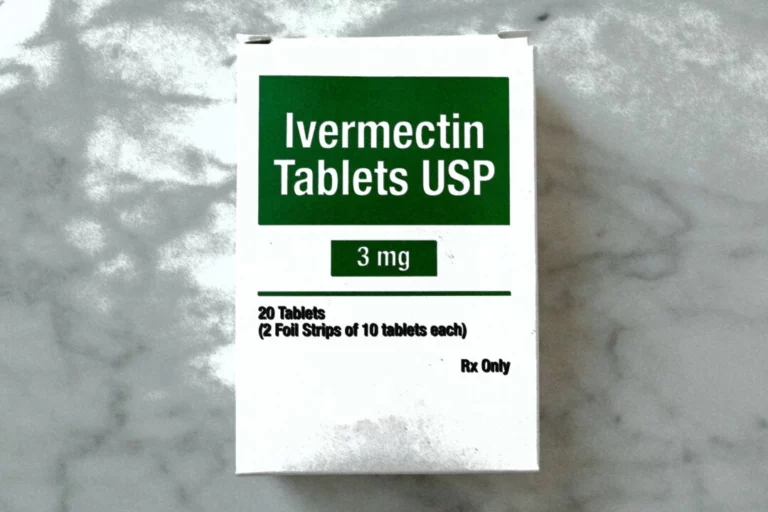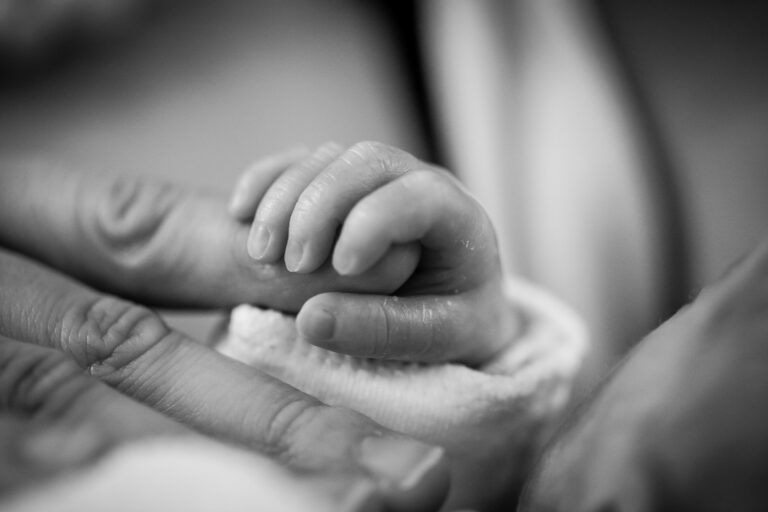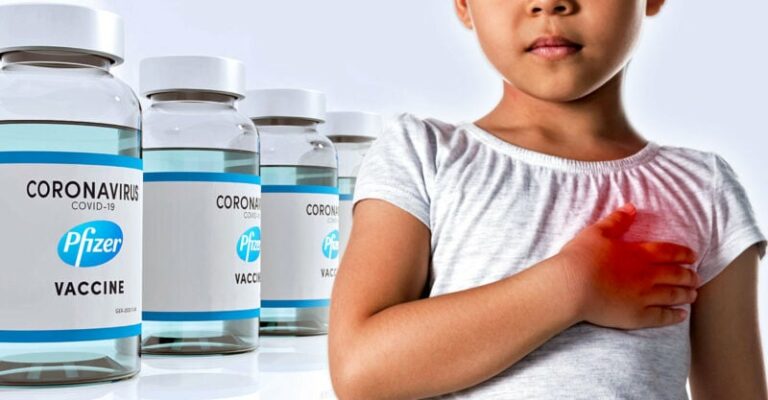‘A Living Nightmare’: Former ‘Pussycat Doll’ Still Recovering From COVID Vaccine Injury
In an interview with The Defender, Jessica Sutta, a former member of the multi-platinum girl group The Pussycat Dolls, shared her life-altering journey of pain, confusion and advocacy after being injured by Moderna’s COVID-19 vaccine.
“I remember when he injected me, I made a joke because it ripped out through my arm — it was like one of the most intense, horrible feelings. And I looked at him and said, ‘Am I going to turn into the Hulk?’”
In an interview with The Defender, Jessica Sutta, a former member of the multi-platinum girl group The Pussycat Dolls, recalled the moment she received her first Moderna COVID-19 vaccine at a CVS Pharmacy in California.
She never suspected this decision would lead to a life-altering journey of pain, confusion and advocacy for those suffering a similar fate.
In August 2021, Sutta decided to get the COVID-19 shot, believing it was the right thing to do for her community. “I was very much focused on mainstream media, believing everything they were telling us, believing all the propaganda,” she said.
Three days after her first shot, Sutta woke up with a muscle spasm in her back, breathing difficulty and brain fog that left her feeling dizzy and unable to think coherently.
She spent a day in the hospital, but the medical staff was unable to make a definitive diagnosis.
Despite mentioning the vaccine to her doctors, they didn’t believe it was the cause of her symptoms. “So they sent me home with antibiotics,” she said.
“I didn’t know it was a vaccine injury for at least a month,” she said. “I thought it was MS” — multiple sclerosis.
‘I felt like I was dying’
Despite her initial symptoms, Sutta received her second dose of the vaccine three weeks later. “And that’s what completely did me in,” she said.
The second shot marked the beginning of a cascade of symptoms, including double vision, burning in her rib cage, muscle fatigue, skin sensitivity and joint pain. “It was just a living nightmare,” she recalled.
Sutta’s journey through the medical system was a frustrating and disheartening experience. She struggled to find answers for her worsening condition, and doctors were quick to dismiss her concerns.
Sutta went to the hospital again in May 2022 due to the unbearable burning sensations. “It was ripping and coursing through my ribcage up and down my spine,” she said. “I couldn’t sleep. I felt like I was dying.”
Despite her pleas for help, the medical staff treated her with skepticism and dismissal. “They ran all these tests, catching nothing, and kept telling me I’m healthy, I’m crazy,” Sutta recounted. “I’m like, ‘Please make the pain stop!’”
The medical staff answered, “What pain? We don’t see it.”
‘We’re at war’
Sutta eventually connected with a neurologist who, upon hearing her symptoms, asked if she had been vaccinated.
“I asked him, ‘Are there a lot of us?’” she recalled. “Well, there are about 50 of you,” he answered.
However, when she later consulted him, he clammed up and wouldn’t discuss it — “as if he were being recorded,” she said.
The hospital medical staff not only dismissed Sutta’s physical symptoms but also began to question her mental health.
“They put me on a lot of psychiatric meds as well, because they said I was making it up,” she recalled. The medications only exacerbated her already debilitating symptoms.
Eventually, Sutta was diagnosed with small fiber neuropathy and fibromyalgia.
The hospital experience was a turning point for Sutta, as she realized the medical professionals’ lack of awareness and compassion.
“That’s when I knew,” she recalled. “I looked at my husband and I said, ‘We’re at war. These people cannot see what’s going on in my body and everybody is gaslighting.’”
‘As an all-American girl … it was a bitter pill to swallow’
Sutta’s experience with the medical establishment left her feeling alone and desperate for answers.
“It feels so isolated, and especially out here,” she said, referring to her community in Los Angeles. “They don’t want anything to do with you if you’re not going with the narrative.”
“In my personal life, I’ve lost a lot of friends,” she said.
Gradually, Sutta began sharing her story with close friends, one of whom asked her to watch a video of vaccine injury testimonies. “It was like a thousand women saying, ‘Dear Pfizer,’ and listing their adverse reactions that were very similar to mine,” she said.
She was so upset by the video, she couldn’t even finish watching it. “As an all-American girl — someone who trusted society had my back — it was a bitter pill to swallow.”
“That’s when the anger really set in,” she said, as she realized the deception around vaccines and how society turned its back on the vaccine-injured.
Despite the wake-up call, connecting with others who had experienced similar vaccine injuries gave Sutta a sense of validation and support.
‘I dived right into the rabbit hole’
The turning point came when Sutta discovered React19, a nonprofit organization dedicated to supporting those with vaccine injuries.
“I was able to find React19 from a Senate roundtable with Dr. Robert Malone and Dr. Peter McCullough — all these wonderful humans — and Brianne Dressen,” she said. “And I was like, ‘Oh my god, I’m not alone.’”
She began to dive deeper into research, seeking information from those speaking out about vaccine injuries. “That’s when I dived into Bobby Kennedy’s books — ‘The Real Anthony Fauci’ — all of it,” she said. “I dived right into the rabbit hole.”
With the support of React19 and a newfound network of doctors and researchers, Sutta began to explore various treatments and therapies to address her ongoing symptoms. However, the road to healing was not without its challenges.
“I found a doctor that did all the treatments — vitamin drips, glutathione, peptides, methylene blue, ozone — but my body rejected everything,” she said.
Sutta said that time and a good diet have helped her condition significantly, “but connection to God is the most important because everything else hasn’t worked.”
‘You can’t allow them to win‘
Releasing resentment and forgiving are important elements of Sutta’s daily practice. “Letting go of the resentment is the most essential key,” she said, “because you live in that anger and it just creates your disease with more stress on your body.”
“I think it’s an opportunity to really meet who you truly are inside,” she said, noting how she had found her strength through the struggle. “I know it sounds crazy, but I think that there’s a psychological aspect to this war that you can’t allow them to win,” she said.
Sutta highlighted the trend of people taking their own lives and medically assisted suicides that are “promoted in many places.”
“I understand why people want to die,” she said. “That’s a big reason you can’t let them win.”
She also emphasized the importance of having a strong support system, particularly her husband. “His having my back throughout this has been the most important piece,” she said. “I’m very lucky to have someone who’s so awake.”
“Life is too short and you should only surround yourself with people that really love you and believe in you and have your best interests at heart,” she said.
‘I’m never going to back down on this’
Despite the personal challenges and the potential impact on her career, Sutta felt compelled to speak out about her experience with vaccine injury. “I had no choice,” she said. “I had to come back and say this.”
She understood the risks associated with going public in an industry that largely favored the vaccine narrative but has been working to get legislation passed in California to help those injured by the vaccines.
“There hasn’t been much change in legislation or anything to do with passing any bills that would help the vaccine-injured,” she said. “We need to help these young adults with these crazy cancers, autoimmune issues and disabilities.”
Sutta believes raising awareness outweighs the potential backlash. She emphasized the importance of “pushing this into the mainstream and letting people see the real truth of the adverse reactions in real time.”
However, she understands these revelations will shock many people.
“When people actually realize the severity of it and how many of us there are, that’s not going to be a good thing for society,” she said. “People are going to go through grief and anger and then feeling really bad that they didn’t do something sooner.”
Through her advocacy work, Sutta supports and encourages others suffering from vaccine injuries. “Your voice matters. You’re worthy of your feelings,” she said. “I feel you and I understand on a deep level. I’m never going to back down on this.”
Sutta emphasized the need for more research, acknowledgment and support for those with vaccine injuries.
“We’ve got to fight through this and persevere,” she said, “because people will wake up. And it’s not going to be forever because there are too many of us.”
‘We will win, just cannot give up’
As Sutta continued on her journey of healing and advocacy, she reflected on the profound changes she underwent personally and professionally. “I don’t even recognize myself as being a Pussycat Doll,” she admitted. “I can’t even imagine doing that again.”
Instead, Sutta is drawn to a simpler life, focused on her family and her passion for helping others. “I’m living my dream right now,” she said. “I just want to be a mom. I love my son. I love my dogs.”
She said she also loves working with React19 and her role as the organization’s creative director. “We have some fun things in store to celebrate life.”
Looking to the future, Sutta emphasized the importance of love, compassion and unity in the face of adversity.
“We’ve got to love one another. We need to wake up to see that they want to pit us against each other,” she said. “We need to get over our egotistical ways and help one another through this humanitarian crisis.”
As she looked ahead, Sutta remained hopeful and determined to make a difference. “We will win, just cannot give up,” she said. “It’s not a choice. We’ve got to fight through this and persevere.”
Readers can connect with Sutta on X (formerly known as Twitter) and Instagram.
The Defender on occasion posts content related to Children’s Health Defense’s nonprofit mission that features Robert F. Kennedy Jr.’s views on the issues CHD and The Defender regularly cover. In keeping with Federal Election Commission rules, this content does not represent an endorsement of Mr. Kennedy, who is on leave from CHD and is running as an independent for president of the U.S.
Suggest a correction






